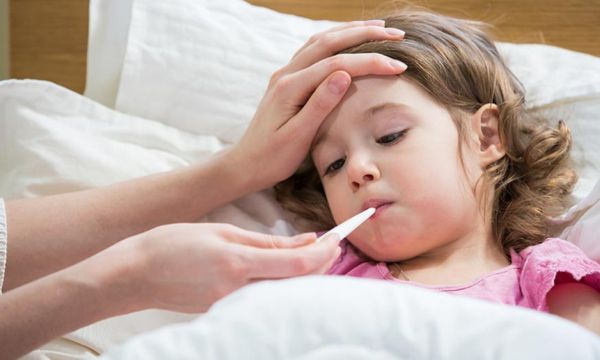Ensuring the Well-being of the Future: Children’s Health Matters
In today’s fast-paced world, it’s easy to overlook the importance of children’s health. With countless distractions and busy schedules, we often forget that the well-being of our children is of utmost importance. However, as responsible parents, caregivers, and educators, we have a responsibility to prioritize their health and ensure they grow strong and resilient. In this article, we’ll delve deeper into the importance of children’s health and provide insights and tips to help you navigate this important aspect of parenting.
Ad
Basic Principles of Healthy Living
Children’s health is the foundation for their future well-being. It includes physical, mental, and emotional aspects, all of which are interrelated. Ensuring children’s health early can set them on the path to a fulfilling and prosperous life.
- Physical Health: Physical health is probably the most obvious aspect of your child’s health. It includes diet, exercise, and regular physical examinations. Feeding your child a balanced diet rich in fruits, vegetables, and whole grains can significantly aid their physical development. Encouraging outdoor play and physical activity not only keeps them healthy but also helps in their social and emotional growth.
- Mental Health: Mental health is just as important. Just like adults, children experience stress, anxiety, and other emotional challenges. Open communication with your child is key to understanding his emotional state. Encourage them to express their feelings and be a supportive listener. If you notice persistent signs of anxiety, consider seeing a child psychiatrist for advice.
- Educational support: Education plays a key role in a child’s development. Creating an environment where learning is encouraged and celebrated is critical. Reading to children from a young age can develop a love of books and knowledge. Additionally, get involved in their school activities and learn about their educational progress. A well-rounded education equips children with the skills and knowledge they need to succeed in life.
- Building resilience: Resilience is the ability to recover from setbacks. Teaching children resilience from an early age can help them deal with life’s challenges with confidence. Encourage them to face adversity and learn from the experience. Celebrate their achievements, no matter how small, to boost their self-esteem.
Develop Healthy Habits
An important aspect of maintaining children’s health is establishing healthy habits early. Here are some practical tips for parents and caregivers:
- Regular inspection: Schedule regular checkups with your child’s pediatrician. These visits help monitor their growth and development and can identify and prevent potential health problems early.
- Balanced diet: Make sure your child’s diet includes a variety of foods rich in essential nutrients. Limit sugary snacks and drinks and encourage the consumption of fresh fruits, vegetables, and whole grains. Adequate hydration is also vital to their health.
- Physical activity: Encourage physical activity by offering opportunities for play and exercise. Limit screen time and participate in physical activities with your family, such as walking, cycling, or exercising.
- Mental health support: Pay attention to your child’s emotional health. Create a safe space for them to express their feelings and watch for signs of stress or anxiety. If necessary, seek guidance from a child psychologist or child psychologist.
- Get enough sleep: Make sure your child gets enough sleep depending on his age. Good sleeping habits are essential for their physical and mental development.
- Limit exposure to harmful substances: Protect your children from harmful substances such as tobacco smoke, alcohol, and illegal drugs. As they get older, educate them about the dangers of these substances.
- Safety measures: Child-proof your home to prevent accidents. Use security doors, secure heavy furniture, and keep harmful chemicals out of reach. Teach your children about safety rules inside and outside the home.
- Vaccination: Stay up to date on your children’s vaccinations to protect them from preventable diseases. Check with your healthcare provider to ensure they receive the recommended vaccines at the right time.
Community Involvement
Promoting children’s health goes beyond individual efforts. Community involvement is critical to creating an environment that supports their well-being. Consider participating in the following activities:
- Parent-Teacher Association (PTA): Join your child’s school PTA to learn more about their educational environment and contribute to school improvements.
- Youth sports and clubs: Encourage your child to participate in youth sports or clubs that match their interests. These activities promote physical fitness, social interaction, and skill development.
- Volunteer work: Participate in community projects with your children to instill a sense of social responsibility and empathy.
- Support local policies: Advocate in your community for policies that promote healthy children, such as safe parks, healthy school lunch programs, and accessible health care.
Conclusion
In summary, a child’s health is a multifaceted aspect of his or her well-being that requires the attention, care, and dedication of parents, caregivers, and the community at large. By prioritizing their physical, mental, and emotional health, we can help children thrive and become their best selves, ensuring a better future for our society.
Frequently Asked Questions
1. What is children’s health? Why is it important?
Child health refers to a child’s overall health, including physical, mental, and emotional aspects. This is critical because a healthy childhood sets the stage for a productive and fulfilling adult life.
2. How do I ensure that my child eats a balanced diet?
To ensure that your child eats a balanced diet, offer a variety of foods, including fruits, vegetables, lean proteins, and whole grains. Limit sugary snacks and drinks and set a positive example by eating healthy.
3. How much physical activity does the child need?
Children should get at least an hour of exercise every day. This can include active play, sports, or simple outdoor activities such as cycling or playing in the park.
4. What are the signs of underlying mental health problems in children?
Signs of underlying mental health problems in children include behavioral changes, mood swings, withdrawal from social activities, excessive worry, and sleep problems. If you notice any of these symptoms, you should seek professional help.
5. How can you help children develop good sleep habits?
Maintain a consistent bedtime, create a comfortable sleep environment, and limit screen time before bed. The amount of sleep needed varies by age, so make sure your child gets the amount of sleep recommended for his or her age.
 Dealing with Cold and Flu in Children: A Parent’s Guide
Dealing with Cold and Flu in Children: A Parent’s Guide
As a parent, seeing your child get sick is a common concern, especially when it comes to […]
More Choosing the Right Therapy for Your Child
Choosing the Right Therapy for Your Child
An important aspect to consider when it comes to ensuring your child’s health and development is treatment. […]
More Managing Childhood Anxiety: A Guide for Parents
Managing Childhood Anxiety: A Guide for Parents
In today’s fast-paced world, anxiety in children is an increasing problem. Many children experience feelings of worry, […]
More